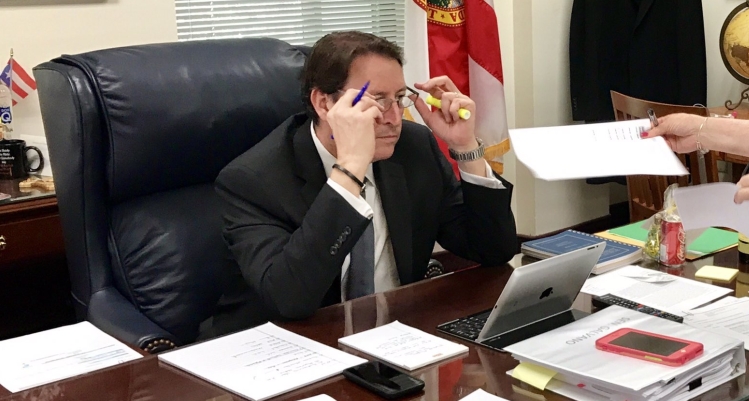With last Thursday’s Florida Supreme Court decision to allow the anti-casino group, Voters In Charge, to continue gathering the 766,200 signatures needed for an amendment requiring voter approval of any gambling expansion in the state to reach the 2018 ballot – Sen. Bill Galvano says the Legislature must act quickly to secure any gambling deal.
Indications are that the court’s decision gives leverage to the Senate, who are more in favor of gambling expansion than the House, who by and large oppose more gaming opportunities for citizens and visitors.
According to a report on Naplesnews.com, if the constitutional amendment is passed by voters the Legislature’s ability to renegotiate a deal with the Seminole Tribe Of Florida would be greatly hampered.
“We will still be able to negotiate with the tribe on multiple issues, but much of our discretion will have been wrested away,” he said.
A deal struck last year by Gov. Scott would have seen the state rake in at least $3 billion from the tribe’s hard Rock and other venues over the next 20 years. Lawmakers rejected that deal, however, and since that time a bevy of lawsuits have arisen in state and federal court, complicating the matter. A new deal will presumably settle most if not all of those lawsuits.
The existence of the lawsuits gives both sides impetus to reach a deal, and with the possibility of decisions moving into the court’s hands or the ballot box, the state has a much to gain by settling before the constitution can be amended.
According to Naples Daily News, legal counsel in opposition to the amendment, Marc Dunbar of Tallahassee said, “The Legislature rarely moves on gambling unless they have to. The court cases that are outstanding have created that pressure.”
Although some may be concerned that last week’s decision by the court could be applied retroactively if the amendment is passed, it would most likely be applied from ratification forward, meaning there is still time for lawmakers to act this year.
To date it is unclear if any truly independent polling has been conducted to test the weather on effects of the amendment, but one poll released in March commissioned by No Casinos In Florida, reportedly found over 80% of Floridians want to keep the status quo or even reduce gambling opportunities and 60% said they would be less likely to vote for someone who supported expansion. The numbers were worse in some parts of the states, but the questions and how they are asked always influence a poll’s results.
Galvano seems to see two edges to the sword and thinks that the courts divided opinion points to the court possibly allowing counties to approve slot machine gaming if county-wide referendums were approved by voters.
Either result, statewide or county by county, could weaken lawmakers abilities to guide the future of gambling and revenues from gambling. “It all comes back to the main theme that we’ve discussed, that either we do it or the courts are going to do it.”
If lawmakers in the Senate and House don’t come together with some sort of compromise, the decisions will be made by the courts settling existing and possible future lawsuits in the next 18 months, or by voters and then the courts.
While the two chambers may find it relatively easy to come to a consensus on such issues as what defines a slot machine or if fantasy sports should be allowed, the more complicated issue is blackjack, which the tribe wants exclusivity for in the state.
Even though they are operating without a compact until one can be hammered out while lawsuits go forward, Seminole tribe has continued to tender revenues to the state in a sign of good faith.



